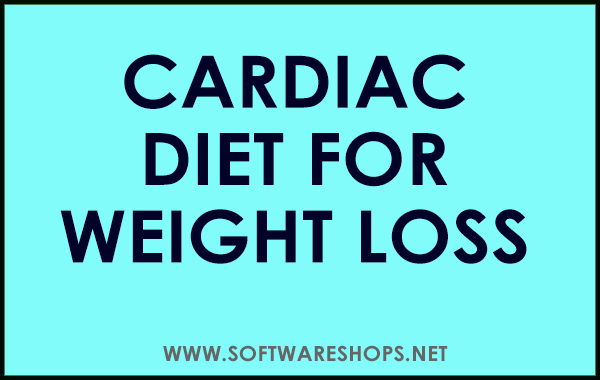The cardiac diet emphasizes foods such as vegetables, whole grains, and oily fish. These foods are beneficial for heart health. The diet also limits processed foods that are high in sugar and salt, as these increase the risk of heart disease.
This article will cover some foods to eat and avoid and give an example of a cardiac diet meal plan.
It will also discuss healthful food options at restaurants, offer tips on how to stick with the diet, and suggest some other lifestyle changes to make.
Foods to include
Include fruits, vegetables, whole grains, oily fish, nuts, and healthful fats in the cardiac diet.
One 2019 review trusted Source indicated that the Dietary Approaches to Stop Hypertension (DASH) diet, the Mediterranean diet, and vegetarian diets have the most evidence for cardiovascular disease prevention.
The American Heart Association (AHA)Trusted Source say that the following foods are beneficial for heart health:
Fruits and vegetables
The phrase “eat the rainbow” is a useful way for people to remember to consume a variety of different colored fruits and vegetables each day. The different types of antioxidants that plant foods contain can help protect the heart.
Fruits and vegetables are also a good source of fiber, which is essential for heart health.
Experts suggest eating 4–5 servings (2.5 cups)Trusted Source of vegetables per day.
People should try to focus on eating non-starchy vegetables and limiting the portion sizes of starchy vegetables, including potatoes and squash.
CARDIAC DIET LOSS 33 LBS IN 15 DAYS
Oily fish
Oily fish contains omega-3 fatty acids, which have anti-inflammatory properties and are good for the heart.
The AHATrusted Source suggest eating 2 servings of fish, particularly fatty fish, per week. A serving is 3.5 ounces cooked or a three-quarter cup of flaked fish.
Fish that are high in omega-3 fatty acids include:
- salmon
- mackerel
- herring
- lake trout
- sardines
- albacore tuna
The Food and Drug Administration (FDA)Trusted Source advise children and pregnant or breastfeeding women to avoid larger fish such as shark, swordfish, and marlin. This is due to potential mercury contamination.
Whole grains
Limiting refined grains and opting for whole grains instead helps protect against cardiovascular diseaseTrusted Source.
Whole grains contain more beneficial fiber than refined grains. People can include whole grain bread, pasta, and rice as part of a healthful diet.
Nuts, seeds, and legumes
The best diets for cardiovascular health include 2–3 cupsTrusted Source of nuts, seeds, and legumes daily.
However, although they are nutritious, nuts and seeds are also very energy-dense. For this reason, a person should consume them in accordance with their desired calorie intake.
A person can try adding the following to their diet:
Nuts: These include walnuts, almonds, Brazil nuts, hazelnuts, pecans, and cashews.
Seeds: These include sunflower seeds, pumpkin seeds, flaxseeds, hemp seeds, and chia seeds.
Legumes: These include garbanzo beans, lentils, black beans, kidney beans, adzuki beans, and fava beans.
Low fat dairy foods
The AHATrusted Source acknowledge the conflicting evidence surrounding saturated fats and the risk of heart disease.
However, they say that most of the evidence suggests that people should consume less saturated fat in their diet. A person can consume less saturated fat by choosing skimmed milk and low fat dairy products.
Foods to avoid
There are several foods a person should try to limit when following the cardiac diet. These are:
Red and processed meat
Red meat is a source of saturated fat. According to several studiesTrusted Source, replacing red or processed meat with plant protein may lower the risk of heart disease.
Plant proteins include nuts, legumes, whole grains, and soy products.
Sugar sweetened foods and beverages
Many processed foods and beverages contain added sugars — especially sodas and energy drinks.
The Dietary Guidelines for Americans recommend limiting calories from added sugars to no more than 10%Trusted Source each day. If following a 2,000-calorie diet, this equates to 200 calories, or 12 teaspoons of sugar, per day.
Avoiding excess sugar can help a person maintain a moderate weight and prevent heart disease.
Processed foods
Processed foods often contain long lists of ingredients, many of which are not beneficial for a healthy heart. For example, many processed foods containTrusted Source:
high sugar
high salt
trans fats
saturated fat
additives and food colorings
If possible, try to cook meals from scratch using whole foods. This is a more healthful option.
Refined carbohydrates
Refined carbohydrates lack fiber and can potentially cause a blood sugar imbalance. Over time, consuming a lot of refined carbs can lead toTrusted Source insulin resistance and weight gain, which are risk factors for cardiovascular disease.
Some refined carbs to limit include:
- white bread, pasta, and rice
- cakes, biscuits, and pastries
- many breakfast cereals
- pizza dough
- sweet desserts
- white flour
- Alcohol
People who consume alcohol should try to do so in moderation. This means consuming no more than one drink per day for women and no more than two drinks per day for men.
Some people believe that a moderate intake of red wine can help protect the heart because it contains resveratrol. However, the evidence for this is weak, according to Harvard University.
Salt
Consuming too much salt (sodium) may give rise to high blood pressure and increase cardiovascular risk.
The AHA say that reducing sodium intake by 1,000 milligramsTrusted Source per day can reduce blood pressure.
Many processed foods contain added salt, so a person can monitor their intake by reading the labels and choosing whole foods instead, when possible.
Thanks & Source: Medical News Today
Note- The information provided on this page is for general purposes only and should not be taken as professional advice. All the content provided on this page is my own creativity.
Did you enjoy reading this post? If you did, please take a second to share it with your friends. Sharing is caring! Thank you So Much.


